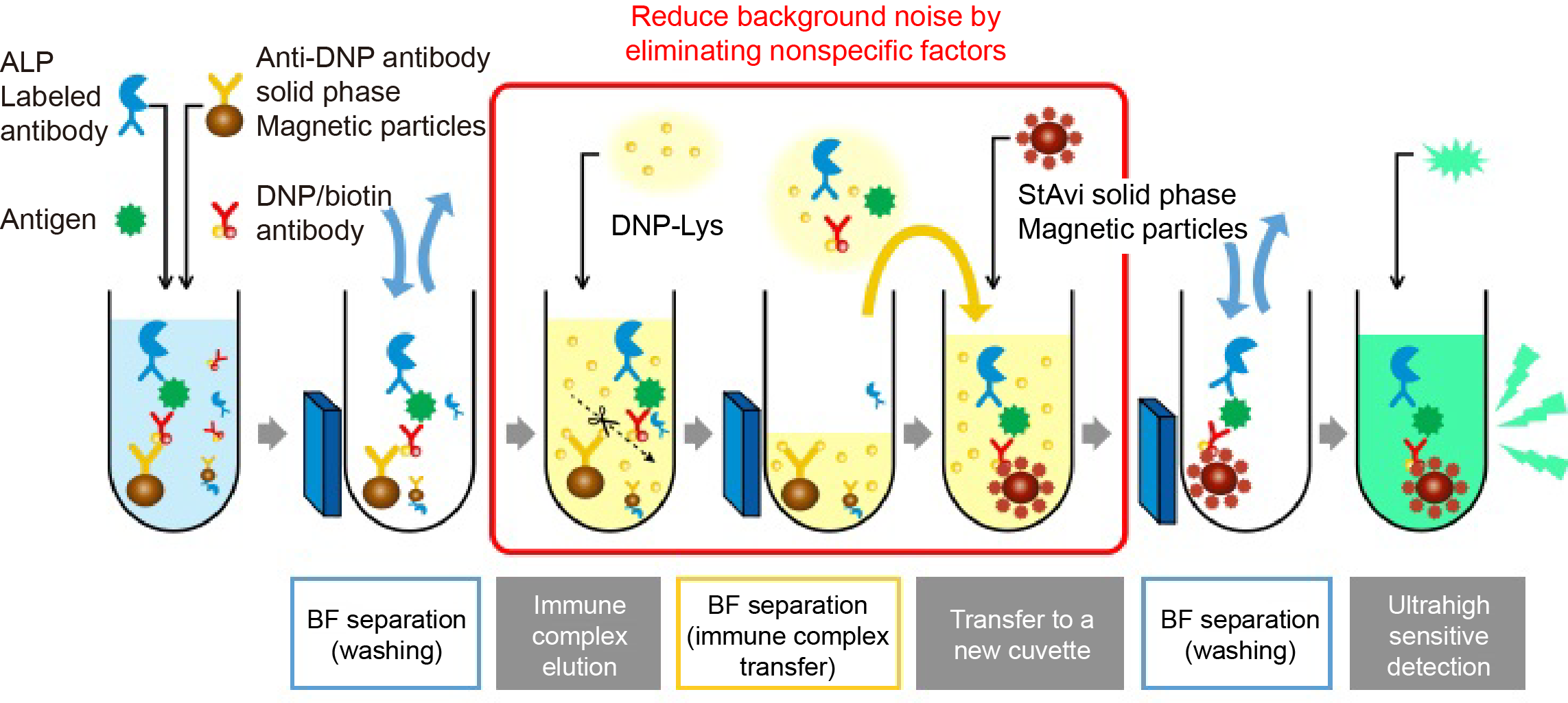Automated High-Sensitive Immunoassay System (HI-1000)
The HI-1000 has advanced the conventional “HISCL™” immunoassay system, by combining the immune complex transfer method with a chemiluminescent enzyme-linked immune reaction delivering a new technology. The sensitivity of the HI-1000 is several tens to several thousand times higher than that of the conventional method, enabling the detection of 0.0005 IU/mf of HBsAg.
RDCA is now aiming to develop novel applications on this platform with regard to various disease fields, especially central nervous system and liver disease.
For HBsAg measurement, high sensitivity approximately 60 times that of HISCL™
Molecular Imaging Flow Cytometry (MI-FCM)
MI-FCM has advanced the core technology of flow cytometry (FCM), enabling the observation of cell morphology while providing intracellular information about genes and proteins. MI-FCM can detect protein locations and types of chromosomal aberrations within a cell in a high-throughput FCM format. Rare cells can be measured with high accuracy. RDCA is now aiming to develop novel applications for this platform.
The system comprises Imaging Flow Cytometer MI-1000 and related software, MI FISH Master, which captures the morphology and fluorescent images of large quantities of cells at high speed and with a high level of detail. These images are then analyzed automatically, using imaging FCM technology to automatically detect chromosomal abnormalities contained in cells in blood cells.
Digital Technologies (AI/IoT)
RDCA is seeking to develop new disease prediction systems that combine genomic information with AI analytics, as well as new diagnostic methods that incorporate AI analytics from image data into various medical tests. RDCA is seeking collaboration to develop network services that will support remote healthcare and preventive medicine.
RDCA contributes to the development of healthcare and the healthy lives of people by taking advantage of sophisticated AI and IoT technologies.


